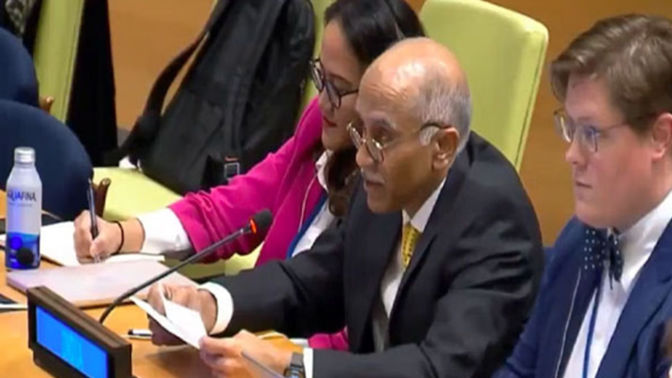
Donald Trump, the former president who is running for a third term this year, has dominated headlines for years, and now another family member has recently stepped into the spotlight ‘Lara Trump’. As the wife of Eric Trump and now the co-chair of the Republican National Committee (RNC), Lara’s journey from an apolitical television producer to a key figure in the GOP underscores the unpredictable nature of American politics.
Moments Before the Shooting Incident
Before Thomas Crooks fired shots targeting Trump at a rally last week, it was a quintessentially Trumpian scene. Donald Trump, surrounded by his family at his Doral golf resort in Florida, proudly listed his children and grandchildren to the adoring crowd Don Jr, Eric, and Barron. Yet, one family member was notably absent. “You like Lara, right?” Trump asked, with his characteristic showmanship. “Lara is [not] only the head of the Republican Party; she’s upwardly mobile.”
Lara Trump’s Rapid Rise
Lara Trump’s rapid ascent within the Republican Party has been nothing short of meteoric. From her beginnings as a producer for “Inside Edition,” she has become a formidable presence in American politics. Her new role as co-chair of the RNC places her at the helm of the party’s electoral machinery, just as the Republicans gear up for the presidential election.
Stepping into the Spotlight
Lara Trump’s political journey began in earnest when Donald Trump first ran for president in 2016. Despite not having a political background, she became an enthusiastic supporter and effective campaigner. Her articulate defense of Trump’s policies and charismatic presence made her a valuable asset to the campaign. By the time Donald Trump sought re-election in 2020, Lara was a prominent surrogate.
The Challenges of Leadership
Taking on the role of RNC co-chair was a key part of Trump’s strategy for his renewed presidency bid. For Lara, it was full of challenges. Since 2017, the RNC was led by Ronna McDaniel, who had a tense relationship with Donald Trump. McDaniel was not on the same page with Trump on the alleged rigged election charge. With McDaniel as the RNC head, many Trump detractors in the party got louder voices than what he liked.
Trump’s decision to appoint Lara as co-chair in March 2024 was seen as a strategic move to ensure loyalty within the party’s ranks. Critics argued that Lara’s appointment was a clear example of nepotism. Despite the skepticism and muted criticism, Lara Trump approached her role with determination, playing an instrumental role in fundraising efforts, helping the party raise over $280 million since March.
Balancing Family and Politics
Lara’s rise in the political arena has also brought her personal life into the public eye. Her relationship with Eric Trump, whom she met in New York City shortly after moving there for culinary school, has been scrutinized and often sensationalized by the media. Despite this, she has maintained a down-to-earth perspective, focusing on her family and her responsibilities.
Born and raised in North Carolina, Lara comes from a socially conservative but not especially political family. She graduated from North Carolina State University and did odd jobs personal trainer, bartender, waitress for about three years before moving to New York City to attend a French culinary school. While in NYC, she met Eric in March 2008. They married six years later, in 2014, after which she moved closer to the Trump home and took the job of a producer for the television program “Inside Edition.”
A New Chapter for the GOP
Trump’s plan this time was to have Lara as co-chair with the loyal pro-Trump operative Michael Whatley as chair. Within days of her appointment, Whatley and Lara removed several old-timers in the organization, bringing in those committed to the Trump campaign. Lara has made the RNC a part of the Trump campaign. Her influence on the party is evident, with her scheduled to speak for 15 minutes at the Republican National Convention, longer than many seasoned Republicans.
Lara is credited with convincing Trump to drop his reservations about mail-in votes, a strategic shift aimed at maximizing Republican voter turnout.















